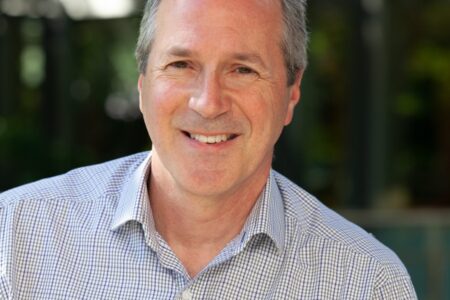OPINION: Time to move on in the marijuana conversation
In early April of this year one of the most brilliant marketing campaigns ever designed was launched. With a splash of media exposure, a small group of eight people started a conversation that has not stopped nearly three months later. As the chatter moves contagiously through more and more people, the volume has been amplified a hundred-fold. The topic? The end of prohibition of marijuana in Canada.
Yes, marijuana is being discussed by municipalities across B.C. The topic, usually banned from government tables, came to the forefront when a letter, signed by eight mayors and ex-mayors, called for provincial and federal government leaders to step up and stop the war on marijuana in Canada. Called the Stop the Violence B.C., the campaign invited every mayor in the province to join them citing the need to reduce the violence associated with illegal trade in drugs by regulating and taxing the drug.
In response to this call for an end to the prohibiton of marijuana, every council in the entire province is talking about their position on the issue – whether they are for or against, they are talking.
It has become more and more apparent that not only has the “war on drugs” failed, but when you see law enforcement officers and lawyers, even attorney generals, step up and call for change you have to wonder if the tide has finally turned. For decades small groups have stood in defiance of the laws, promoting a different perspective on marijuana. Decriminalization and legalization cries have had a small voice for years.
Maybe they were just using the wrong words, for now the din of regulate and tax, in a time of economic strife, might sway the larger masses. Funny what it takes to influence change.
Let’s face it folks, people around the globe have been using marijuana and, aside from the violence related to the growing and dealing of the drugs, we have never heard that someone went on a rampage because of smoking weed. In the famous words of comedian Dennis Leary, the worst anyone who is high usually does is start construction.
Just imagine the savings for the government with millions spent every year just trying to stop the grow ops, and how that could bolster our health care not to mention deflating the coffers of organized crime.
Unlike tobacco, which leaves people with lung cancer and other debilitating conditions over time, the millions saved would not just be moved over to care for the tokers in their elder years. Science has yet to prove a link between marijuana and cancer or any other condition per se. In fact the link flows the other way – marijuana helps patients with cancer.
And just imagine the business boom – legalized growers opening greenhouses (sales tax), hiring staff (income tax), the need for transportation to markets (gas tax), new products to compliment the maryjane (more sales tax), and all sold through our provincial outlets, offering job stability and growth. Did I mention the taxes?
But there’s the ethical issue, you say. It will be hard for some politicians to agree with the end of prohibition based on their moral stance or for fear of upsetting their constituents. But what is that belief based on?
A gateway drug, really? Couldn’t we argue just as equally that alcohol or coffee are gateway drugs? Okay, stay with me on alcohol then.
We teach our children that alcohol is to be used appropriately, and certainly not by youth. But how many kids sneak into their parent’s liquor cabinet for a taste or two? And cigarettes? Next thing you know they are smoking in the alley on lunch break, or getting someone to buy them booze.
We all know this story. Making a drug elusive only makes it more attractive. The rationale here is that there needs to be controls in place – parents, government and society. Not the type of controls offered by Snake, the local dealer.
To quote Jim Leslie, an advocate who presented to Grand Forks council in their first discussion on this topic, the only gateway to harder drugs is the dealer who sells them all.
So let’s take him out of the equation.
Kudos to the mayors who took the first step to start the conversation. And to those who designed this campaign – there could not have been a better way to get the topic into the lives and conversations of so many people across our province at the same time. Perhaps this time the volume will be too loud to ignore.


























